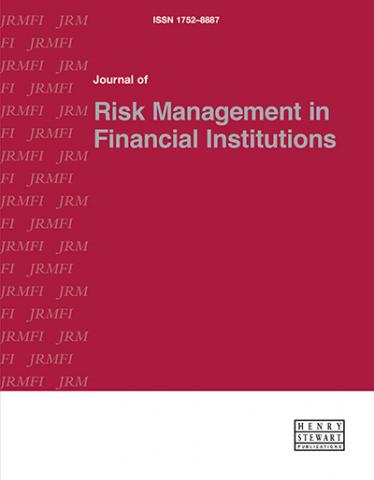"JPSS has articles that make you really think about payments and how they affect commerce and society."
Winning a seat at the ESG table
Click the button below to download the full text of the article.
Abstract: Financial Institutions (FIs) struggle to identify, assess and develop appropriate responses that proactively address potential events for more traditional known risks let alone new, emerging and imprecise risks in the often difficult-to-quantify Environmental, Social & Governance (ESG) space. ESG-related risks present even greater challenges to established risk management frameworks such as COSO because ESG risks are generally not well known to the business and include ‘black swans’ or other unforeseen events that can challenge the entities’ short-term or long-term performance or even survival; tend to be longer term in nature than the timeline with which strategy is set or risks have been considered historically; and beyond the scope of any one entity. The good news is that FIs’ existing — and often highly sophisticated risk, compliance and legal functions (Risk Team) — are well equipped to integrate and mitigate these significant ESG-related risks into the FI’s risk management framework. The authors, drawing upon first-hand experience as government-appointed monitors for large, global financial institutions, provide a practical roadmap for defining and mapping ESG-related risks. They also explain why Chief Risk Officers, Chief Compliance Officers and Chief Legal Officers must seize this unique opportunity to not only avoid the financial, legal, regulatory, and reputational losses that will inevitably follow without an ESG risk management program — but also enhance the value the Risk Team delivers as ESG priorities become pervasive across FIs worldwide. Acknowledging that sustainability and/or ESG professionals are uniquely qualified to provide critical guidance defining and communicating the FI’s objectives, the authors provide a proven framework and methodology for compliance and risk practitioners to leverage as they reach across the aisle to their counterparts in Sustainability or Corporate Social Responsibility to elevate the ESG risk conversation and their own visibility.
Keywords: ESG/environmental social & governance, ESG risks, greenwashing, sustainability, ESG integration, CSR
Jonny Frank is a Partner at global advisory firm StoneTurn. He serves as the Department of Justice (DOJ)-appointed Monitor to Deutsche Bank, DOJ voluntary monitor and remediation consultant to a northern European bank, forensic audit adviser to the SEC-appointed Independent Consultant of a Big Four public accounting firm, and US DOJ-appointed Independent Auditor to a top five automotive manufacturer. He previously served as the Executive Deputy Compliance Monitor of Volkswagen, NY Department of Financial Services Compliance Monitor of Ocwen Financial Corporation, a Big Four partner, Executive Assistant United States Attorney for the Eastern District of New York and on the faculties of the Yale School of Management, Fordham University Law School and Brooklyn Law School.
Jim Barolak is a Partner at global advisory firm StoneTurn. He views risk management and compliance through the lens of sustainability with a focus on corporate social responsibility and environmental, social and governance reporting (ESG) reporting. He is a subject matter expert (SME) on risk assessments and internal controls, and served as SME for the DOJ-appointed independent compliance and business ethics monitor to one of the world’s largest investment banks and also supported the monitorship team of a large US mortgage servicer. He brings nearly 40 years of experience as a trusted adviser, results-driven project lead and engineer.
Germari Pieterse is a Managing Director at global advisory firm StoneTurn. She is a Chartered Accountant in South Africa. A former COO and CFO, Germari leverages her significant C-suite expertise to help clients identify and implement pragmatic approaches to governance, management and analysis, as well as ESG reporting, corporate social responsibility and impact investment. She advises clients on the design of effective financial infrastructures, enhancement of governance and compliance programs and also conducts internal audits and assessments.



